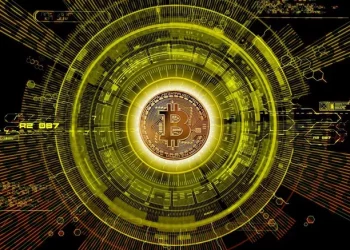The concept of a “digital dollar” has gained significant attention in recent years as governments, financial institutions, and technology companies explore the potential of digital currencies. As the world becomes increasingly digital, the idea of a digital dollar represents a major shift in how money could be created, distributed, and used. This article delves into what the digital dollar means, how it differs from traditional money, its potential benefits and challenges, and its implications for the future of the global financial system.
Understanding the Digital Dollar
Definition of a Digital Dollar
A digital dollar refers to a digital version of the U.S. dollar that exists purely in electronic form. Unlike physical cash, which is tangible and can be exchanged hand-to-hand, a digital dollar would exist as a digital token or entry on a digital ledger. This digital currency would be issued and backed by the U.S. government, just like traditional paper money, but it would be stored and transferred electronically.
The concept of a digital dollar is often associated with central bank digital currencies (CBDCs), which are digital forms of a country’s fiat currency. A CBDC is issued and regulated by a central bank, in this case, the Federal Reserve, and would serve as a legal tender, similar to cash and bank deposits.
Differences Between Digital Dollars and Cryptocurrency
It’s important to distinguish between a digital dollar and cryptocurrencies like Bitcoin. While both are forms of digital currency, they differ in several key aspects:
Issuance and Regulation: A digital dollar would be issued and regulated by the U.S. government, ensuring its stability and legal status. Cryptocurrencies, on the other hand, are typically decentralized and not issued by any government.
Value Stability: The value of a digital dollar would be directly tied to the value of the traditional U.S. dollar, making it stable and predictable. Cryptocurrencies can be highly volatile, with their value fluctuating based on market demand and other factors.
Legal Tender: A digital dollar would be recognized as legal tender, meaning it must be accepted for the payment of debts, taxes, and other obligations. Cryptocurrencies are not considered legal tender in most countries and are accepted only where merchants choose to accept them.
How the Digital Dollar Would Work
The digital dollar would work similarly to other forms of digital payments but with some key differences:
Creation and Distribution: The Federal Reserve would create digital dollars and distribute them through the existing banking system or directly to individuals and businesses. These digital dollars would be stored in digital wallets, which could be managed by banks or other financial institutions.
Transactions: Digital dollar transactions would occur through digital platforms, allowing for instant, secure, and traceable transfers of money. These transactions could be conducted through mobile apps, online banking, or other electronic means.
Storage: Digital dollars would be stored in digital wallets, which could be on a smartphone, computer, or other digital devices. These wallets would be secure and protected by encryption, ensuring the safety of the funds.
Potential Benefits of the Digital Dollar
Increased Efficiency in Payments
One of the most significant advantages of the digital dollar is the increased efficiency it could bring to the payment system. Digital transactions are typically faster and more cost-effective than traditional methods, such as cash or checks. With a digital dollar, payments could be made instantly, reducing the time it takes for funds to clear and settle.
Financial Inclusion
The digital dollar could also enhance financial inclusion by providing access to financial services for those who are unbanked or underbanked. Individuals without access to traditional banking services could use digital wallets to store and manage their money, making it easier to participate in the digital economy.
Reduced Costs
By eliminating the need for physical cash, the digital dollar could reduce the costs associated with printing, storing, and transporting money. It could also lower the costs of financial transactions, as digital payments are generally less expensive to process than cash or checks.
Enhanced Security
Digital dollars would be stored and transferred through secure digital systems, reducing the risk of theft, counterfeiting, and other forms of financial fraud. The use of encryption and other security measures would help protect digital wallets and transactions from unauthorized access.
Improved Monetary Policy
A digital dollar could give central banks more precise control over monetary policy. For example, the Federal Reserve could implement real-time adjustments to the money supply, interest rates, and other economic variables, leading to more effective management of the economy.
Challenges and Concerns
Privacy Issues
One of the main concerns surrounding the digital dollar is privacy. Digital transactions are inherently traceable, which could lead to concerns about government surveillance and the potential misuse of personal financial data. Ensuring that the digital dollar protects users’ privacy while still providing necessary oversight is a significant challenge.
Cybersecurity Risks
As with any digital system, the digital dollar would be vulnerable to cybersecurity threats, including hacking, data breaches, and other forms of cybercrime. Ensuring the security and integrity of the digital dollar system would require robust cybersecurity measures and ongoing vigilance.
Impact on the Banking System
The introduction of a digital dollar could disrupt the traditional banking system. If individuals and businesses begin to hold significant amounts of money in digital wallets rather than bank accounts, banks could face reduced deposits, which could affect their ability to lend and manage liquidity. This shift could require banks to adapt their business models to remain competitive in a digital currency environment.
Technological Infrastructure
Implementing a digital dollar would require significant technological infrastructure, including secure digital wallets, payment systems, and regulatory frameworks. Building and maintaining this infrastructure would be a complex and costly process, requiring coordination between the government, financial institutions, and technology providers.
Global Implications
The introduction of a digital dollar could have far-reaching implications for the global financial system. As the U.S. dollar is the world’s primary reserve currency, the adoption of a digital dollar could influence other countries to develop their own digital currencies. It could also impact international trade, investment, and monetary policy, requiring careful consideration of the global consequences.
The Future of the Digital Dollar
Pilot Programs and Research
The Federal Reserve and other government agencies are currently exploring the feasibility of a digital dollar through pilot programs, research, and public consultations. These efforts aim to understand the potential benefits and risks of a digital dollar and to determine the best path forward.
Public and Private Collaboration
The development of a digital dollar would likely involve collaboration between the public and private sectors. Financial institutions, technology companies, and regulatory bodies would need to work together to create a secure, efficient, and user-friendly digital currency system.
Legal and Regulatory Considerations
The introduction of a digital dollar would require new legal and regulatory frameworks to address issues such as privacy, security, and consumer protection. Policymakers would need to carefully consider how to balance innovation with the need for oversight and regulation.
Potential Timeline
While the concept of a digital dollar is still in the exploratory stage, it could become a reality within the next decade. The timeline for its implementation would depend on the outcomes of pilot programs, technological developments, and the resolution of legal and regulatory challenges.
See also: Which Countries Have Central Bank Digital Currency (CBDC)?
Conclusion
The digital dollar represents a significant innovation in the world of finance, with the potential to transform how money is created, distributed, and used. As a digital version of the U.S. dollar, it offers numerous benefits, including increased efficiency, financial inclusion, and enhanced security. However, it also presents challenges, such as privacy concerns, cybersecurity risks, and potential disruptions to the traditional banking system.
As governments, financial institutions, and technology companies continue to explore the possibilities of a digital dollar, it is essential to carefully consider its implications for the economy, society, and the global financial system. The future of the digital dollar will depend on the successful navigation of these challenges and the development of a secure, efficient, and equitable digital currency system. Whether or not the digital dollar becomes a reality, its exploration is already shaping the future of money and finance.
Related topics:
What Are the Different Digital Currencies?

















